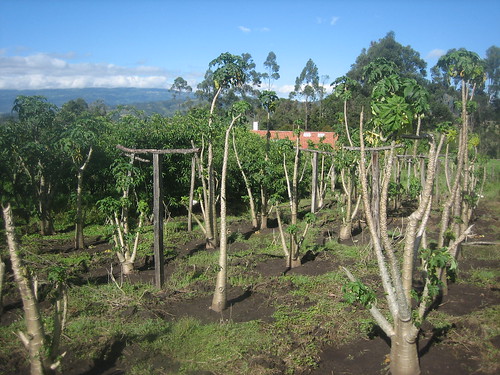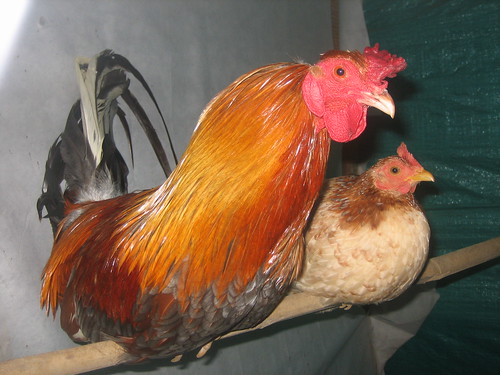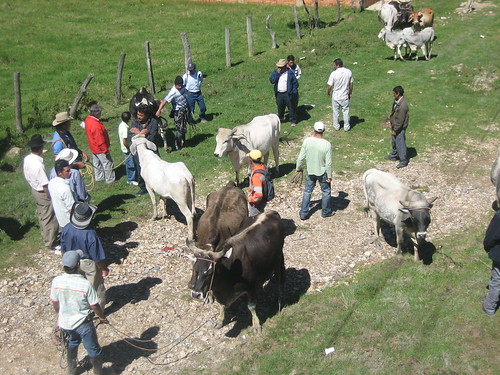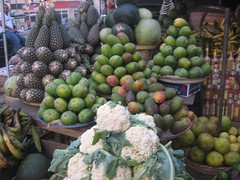The MDP network keeps expanding! below find today's press release from the MacArthur Fd listing 10 additional universities that will be offering the Masters in Development Practice. Notice how the agricultural component of the network keeps getting stronger with the addition of CATIE in Costa Rica and UC Davis in California.
Cheers,
****
Chicago, IL, May 4, 2010 – The John D. and Catherine T. MacArthur Foundation today announced grants totaling $5.6 million to ten universities in eight countries to establish new Master's in Development Practice (MDP) programs. The programs combine training in the natural sciences, social sciences, health sciences, and management to help practitioners address global challenges such as sustainable development, climate change, and extreme poverty. The universities were selected through a competitive process that included reviews by experts outside the Foundation.
MDP programs are designed to offer graduate students training beyond the typical focus on classroom study of economics and management found in most development studies programs. The degree will provide students with substantive knowledge required to analyze and diagnose multi-dimensional problems such as malnutrition, extreme poverty, climate change, and infectious disease control by integrating the core disciplines of health sciences, natural sciences, social sciences and management. At the same time, the programs help develop practical skills through extended periods of field training to provide hands on, problem solving experience for students in a developing country.
"Today's global development challenges – from human rights to extreme poverty and climate change – are interconnected," said Barry Lowenkron, MacArthur's Vice President for Global Security and Sustainability. "So the next generation of sustainable development leaders must be able to draw on our best knowledge across multiple fields such as agronomy, health, and the environment."
These grants complete a $16 million MacArthur investment to seed the creation of new Master's programs in sustainable development practice at universities worldwide over three years. The first awards were made last year to ten universities in seven countries. Together, the universities are expected to produce 400 graduates by 2013, with a total of 800 students enrolled each year.
The universities receiving grants to establish MDP programs are:
BRAC University (Dhaka, Bangladesh) ($200,000) will establish an MDP program within the BRAC Development Institute. The University will partner with its sister organization, BRAC, one of the largest non-government development organizations in the world, which manages sustainable development projects in over 69,000 villages throughout Bangladesh. For their field training, MDP students will participate in some of BRAC's projects, addressing issues such as poverty, microfinance, rural health care, and non-formal education.
The Institute of Political Sciences (Sciences Po) (Paris, France) ($800,000) will serve as a regional francophone MDP hub and focus on sustainable development in the Maghreb and West Africa. Students will be able to choose from among four field training opportunities in Senegal, Burkina-Faso, Tunisia, and Morocco.
Tropical Agricultural Research and Higher Education Center (Turrialba, Costa Rica) ($800,000) is a leading research and graduate training institute with expertise in tropical agriculture, natural resource management, and sustainable development. The Center's MDP program will have several partner organizations including the University of Minnesota, which will expand the Center's focus to include health sciences.
Universidad de los Andes (Bogotá, Colombia) ($800,000) will build on its Master's in Environmental Management within the School of Management to focus on climate change and conservation for the Andean-Amazon region, in addition to offering a curriculum in the MDP core competencies of the social, natural, and health sciences.
Universidade Federal Rural do Rio de Janeiro (Rio de Janeiro, Brazil) ($800,000) will offer courses and field training on the biodiversity of the Atlantic Rainforest and the Amazon Region, as well as the challenges posed by the country's urbanization. The program will collaborate with one university in Mozambique and three in Brazil and, serving as the MDP hub for Portuguese-speaking Latin America and Africa.
University of California, Berkeley (Berkeley, California) ($800,000) will house its MDP program in the College of Natural Resources but draw from faculty across the University, including engineering, business, and public policy. The program will also offer an open source curriculum that will be available to other universities in the MDP network. The University will partner with the Tropical Agricultural Research and Higher Education Center (Costa Rica), the Southeast Asian Regional Center for Graduate Study in Agriculture (the Philippines), and St. Petersburg State University (Russia), among others.
University of California, Davis (Davis, California) ($200,000) will offer an MDP program within its College of Agriculture and Environmental Science. The program will serve as an agriculture hub for the MDP network, and will offer field training in the Central Valley of California and at the University of Peradeniya in Sri Lanka, where students will focus on sustainable tropical agriculture.
University of Peradeniya (Peradeniya, Sri Lanka) ($200,000) will offer an MDP program with a focus on sustainable development challenges in South Asia, emphasizing tropical coastal areas and small islands. The University will collaborate with the International Research Institute for Climate and Society at Columbia University, University of California, Davis, and the Foundation for Environment, Climate and Technology, among others. Field training will take place in Sri Lanka and the Maldives.
University of Waterloo (Ontario, Canada) ($200,000) will build on its existing, inter-disciplinary undergraduate degree in environmental and international development to create an MDP program housed within the School of Environment, Enterprise and Development. Field training will consist of two, three-month postings focused on South Africa, organized through partnerships with Rhodes University and the University of the Western Cape
University of Winnipeg (Winnipeg, Canada) ($800,000) will offer an MDP program with a focus on indigenous peoples and sustainable development. Winnipeg will partner with the University of Ottawa and Pontifica Universidad Católica del Peru, which will serve as the primary link between the program and indigenous communities throughout Canada and Latin America.
Universities were selected based on five criteria, including support from top university leadership, excellent infrastructure and academic programs, and the ability to serve as regional hub; geographic representation among students and exceptional faculty across the four core competencies of the natural, health, and social sciences and management; and a timeline and business plan for financial sustainability when funding ends in three years.
A Global Master's in Development Practice Secretariat, supported by MacArthur and based at Columbia University's Earth Institute, will help manage the MDP network of universities, develop an open-source repository for the MDP curriculum and other teaching materials, and offer an online global classroom on sustainable development for students worldwide.
The creation of the Master's in Development Practice Program was a key recommendation of the International Commission on Education for Sustainable Development Practice, whose report was released in October 2008. The MacArthur-supported Commission was co-chaired by John McArthur, Chief Executive Officer of Millennium Promise, and Jeffrey Sachs, Director of the Earth Institute at Columbia University, and comprised of 20 top thinkers in the field of sustainable development from around the world.
The MacArthur Foundation supports creative people and effective institutions committed to building a more just, verdant, and peaceful world. In addition to the MacArthur Fellows, the Foundation works to defend human rights, advance global conservation and security, make cities better places, and understand how technology is changing children and society. More information is available at
www.macfound.org.
Press contact: Andy Solomon, MacArthur Foundation, (312) 917-0313,
asolomon@macfound.org







